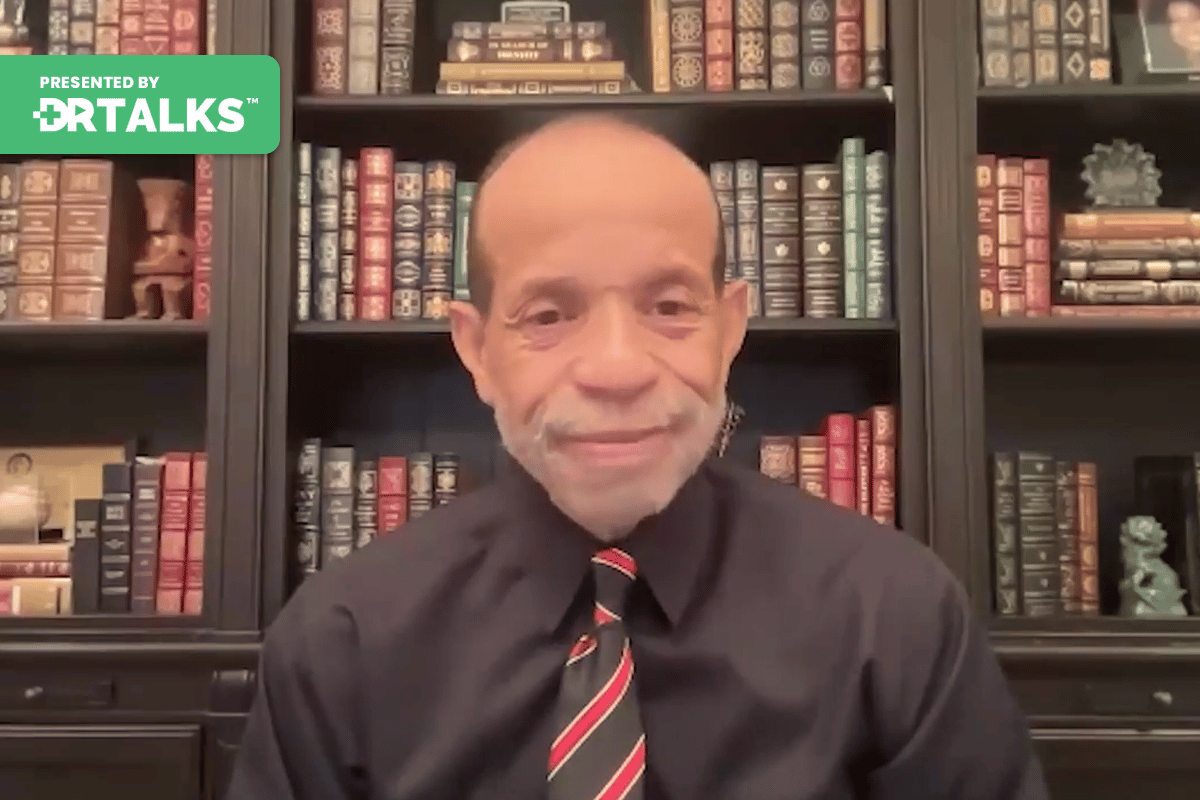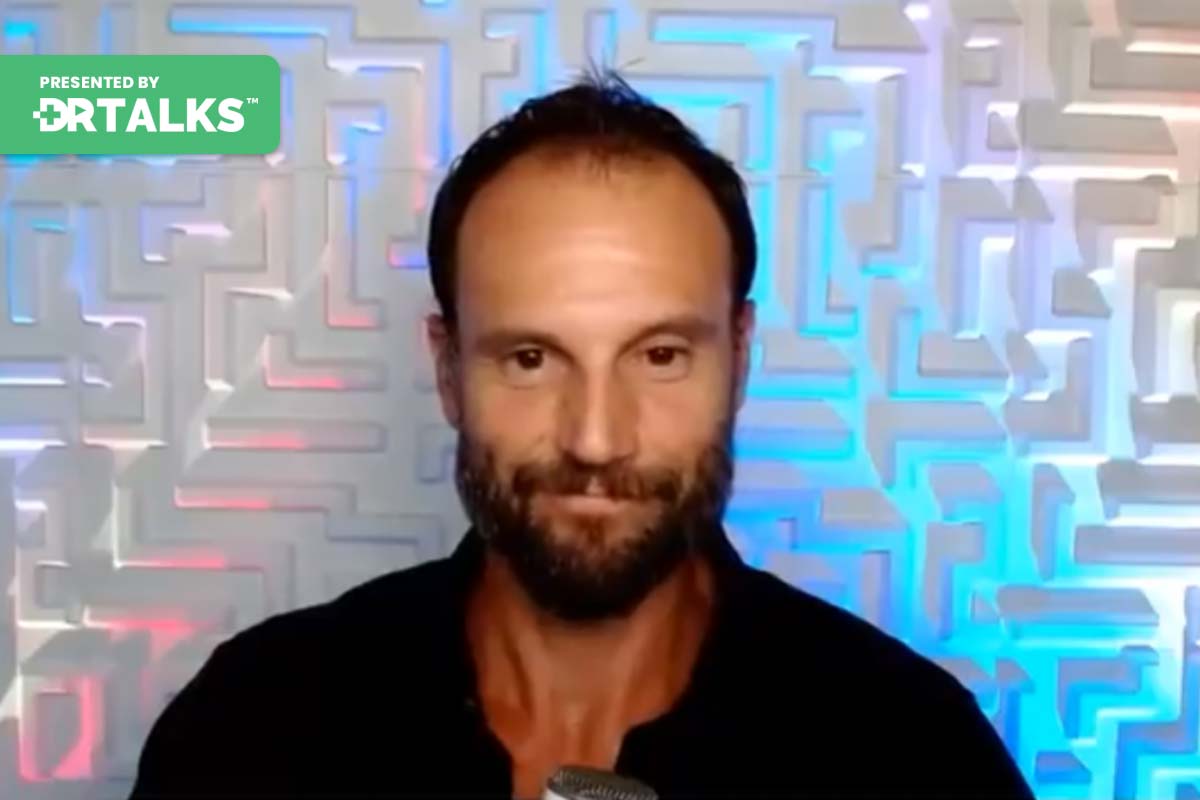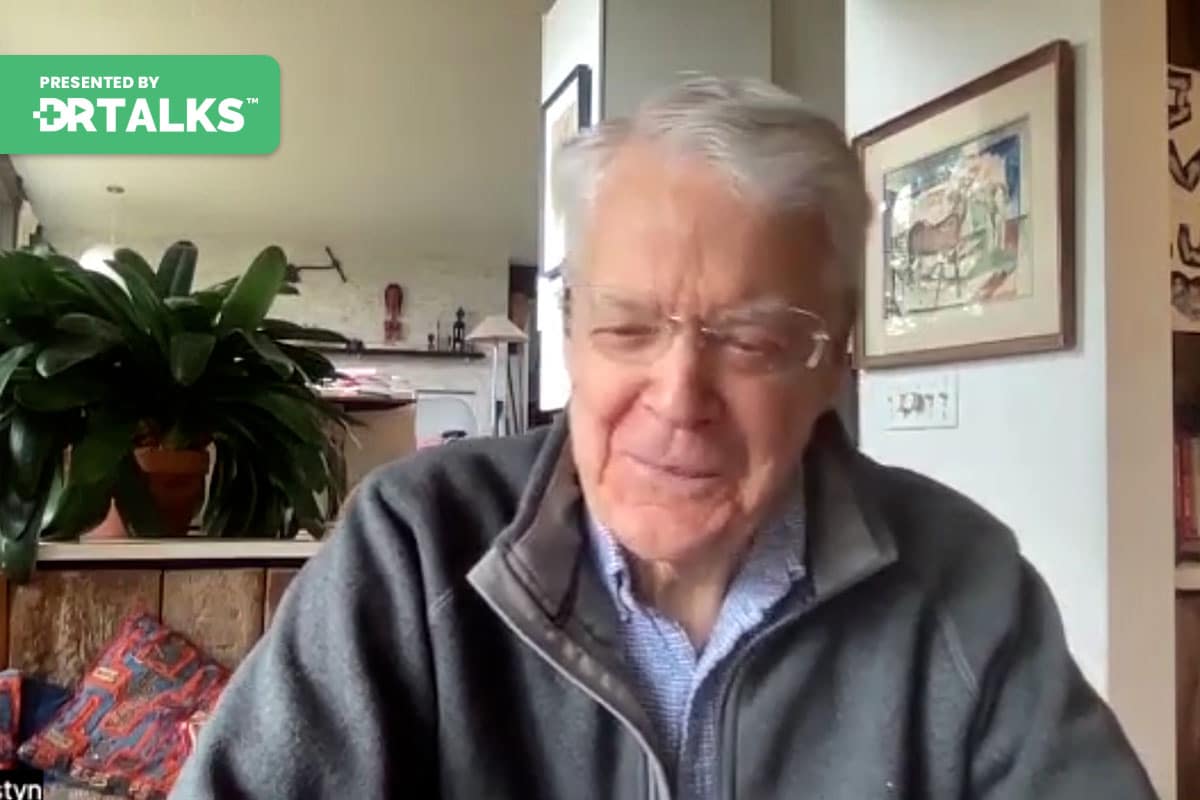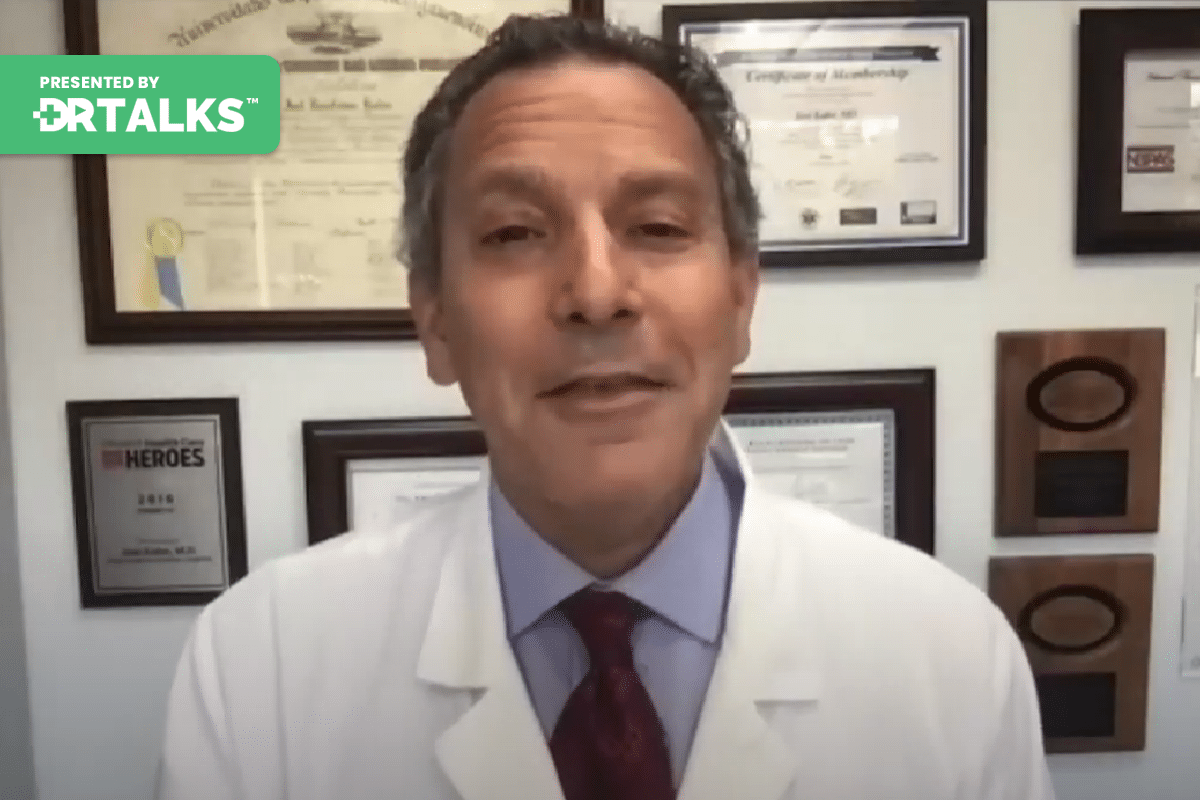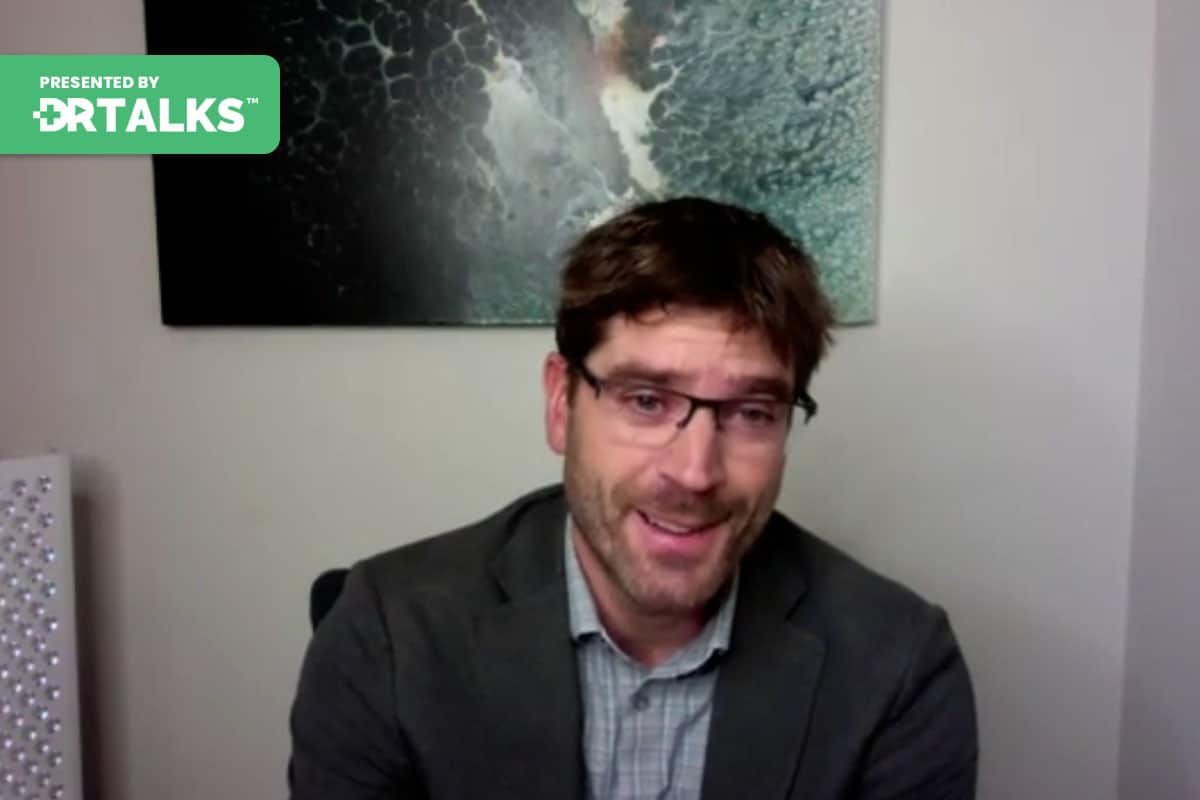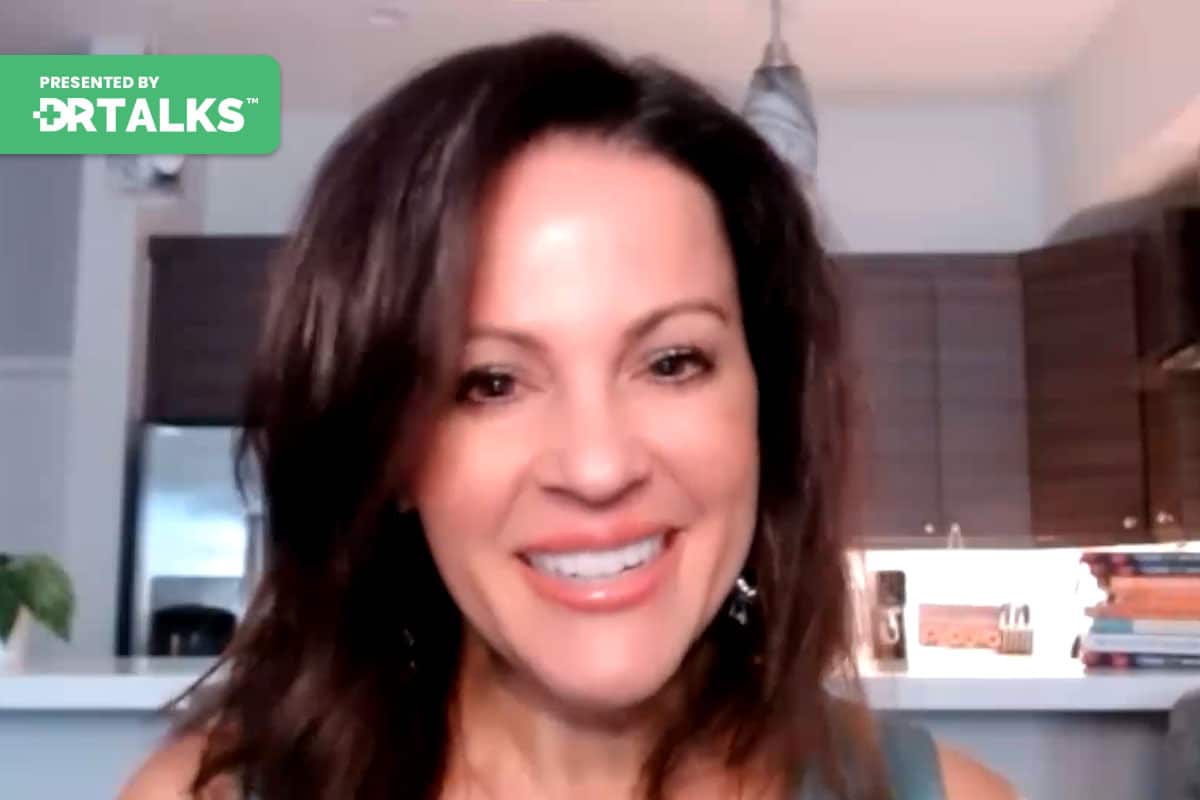Join the discussion below
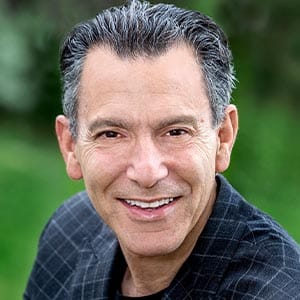
Joel Kahn, MD, FACC of Detroit, Michigan, is a practicing cardiologist, and a Clinical Professor of Medicine at Wayne State University School of Medicine. He graduated Summa Cum Laude from the University of Michigan Medical School. Known as “America’s Healthy Heart Doc”. Dr. Kahn has triple board certification in Internal... Read More

Dr. Mark Houston graduated phi beta kappa and summa cum laude from Rhodes College, with a BA in chemistry and math. He graduated with highest honors and the Alpha Omega Alpha honorary society distinction from Vanderbilt Medical School. He completed his medical training at the University of California in San... Read More
- Metabolic cardiology was first introduced by cardiologist Stephen Sinatra, MD who recently passed away. He studied the biochemistry of heart energy pathways and supported them through natural supplements
- A case of congestive heart failure and a weakened heart is presented along with the use of metabolic cardiology approaches to strengthen the heart in addition to standard medications
Joel Kahn, MD, FACC
Well, hello audience. Welcome back to the Reverse Heart Disease Naturally Summit. Thank you and do not go anywhere. As we say, buckle up. Be ready for an exciting interview that has a lot of meaning to me ’cause this is a mentor of huge importance in my life. And without further ado, Mark Houston MD in Nashville, Tennessee, how are you sir?
Mark Houston, MD
I’m good, Joel, thank you for having me.
Joel Kahn, MD, FACC
Now, for sake of time, I do wanna say this is one of the most honored, and awarded, and academic doctors in the field of preventive cardiology, preventive medicine. A recent book I just got through, absolutely amazing, “The Truth About Heart Disease,” Mark Houston MD. And I will show you, for those of you listening in right now, the biography for Dr. Houston. I could take the next 10 minutes. Vanderbilt University School of Medicine, UCSF training back to Nashville, and now for a long time, the director of the Hypertension Institute. Clearly a world referral center for issues of blood vessel health, blood pressure, and what we’re gonna talk about in a minute, metabolic cardiology. I’ll also say my office is full of books from Dr. Houston, he’s a prolific author. I’ve been in his office, he’s been featured in so many magazines in Nashville and around the country. It’s crazy, it’s wonderful.
But we’re gonna just take a detour for a minute and share some thoughts from Dr. Houston, before we go to the medical part of it, about a mentor to you, I believe, fair to say, Dr. Houston, and a mentor of mine, and that would be a doctor we lost in 2022 rather sadly, Dr. Stephen Sinatra. This book amongst so much else that he did was just radical, revolutionary free thinking, “Metabolic Cardiology,” which we’ll talk about. I will say that I, not knowing this was gonna happen this way, I wrote you a brief little comment about how wonderful your book was, and right above it is Dr. Sinatra’s comment. So I’m glad we’re there. We reached out to his family and said, can we take a minute and really honor the memory of a great and innovative cardiologist who, we wouldn’t have this summit, I’m not sure you’d have your practice exactly like you got it, or my practice exactly like I have it if it wasn’t for the free thinking and innovation of Dr. Sinatra. So I’ll stop there. Just reflect for five, six, seven minutes about when you met him and the influence and his legacy that unfortunately now is a memorial legacy.
Mark Houston, MD
Absolutely, Joel, again, thank you for your kind words, your introduction, and specifically about your role with Dr. Sinatra, the book. And also he’s been a mentor for me for years. And as most of you know, Steve was a pioneer in cardiovascular medicine. He was the first one to recognize how important coenzyme Q10 was for cardiac function, way ahead of his time. It took almost 30 years later before people actually began to do clinical trials to prove that his theories about metabolic cardiology and CoQ10 were actually correct. He wrote many books about metabolic cardiology. He studied information on the truth about cholesterol and the cholesterol myth. He wrote a very incredible book with Jonny Bowden. And later he started doing work with earthing and the role of that relating to cardiovascular health, but also health in general. Steve was an incredible man. I mean, he was one of the kindest people I’ve ever met. He never said anything bad about anyone. He was always optimistic, God-fearing man, potential for research and teaching beyond anything you can imagine. An incredible family, an incredible career.
And everybody, really, probably around the world, knew who Dr. Sinatra was because he was a presence that no one else could command. He was so prolific in his writings and in his research and in his speaking. I had the pleasure of editing two books with Steve actually, on nutritional aspects in cardiovascular medicine. In fact, the last book that he and I edited together was published about two weeks after he died. And that’s with CRC Press. I’m sure as we go through this summit, you’ll be able to show that book as well as the previous one that he and I edited together. But it’s a composite of many prolific authors, a state-of-the-art book in the role of how nutrition can not only prevent but treat corneal heart disease. Steve was a professor at University of Connecticut, Chief of Cardiology, and was well respected, not only in traditional medicine, but also in integrated cardiology throughout the world. I had great respect for Steve. I miss him as a friend, incredible colleague, and I say my incredible respects to his family. He will be missed, not only for the person he was, but also for the incredible contributions he made in cardiovascular medicine.
Joel Kahn, MD, FACC
And I think that was a beautiful, beautiful tribute. I got to meet him through my integrative cardiology training that you were the key mentor. But I was an interventional cardiologist before that and I never got to meet Andreas Gruentzig from Switzerland. But everybody commented, I know his biography very well, and he tragically died in an airplane crash he was flying, 1985. He would walk in a room and there’d be a presence. And I only say that about Dr. Gruentzig ’cause that was certainly Steve Sinatra. And the presence was a smile and it was warm and it was welcoming and an arm around the shoulder. I mean, he did not know me from a lot of other people around. You had a much closer relationship. But that was very, very special. You also do a excellent job of that, Dr. Houston. And there’s so much, there’s probably so many cardiologists and internists worldwide that have changed their practice and upgraded because of Dr. Sinatra. So his legacy will live on. His grounding “Earthing” work, a great book by that title, is a legacy that’ll live on. And I have to say, he makes some of the best marinara and extra virgin olive oil because he went back to his Italian roots and a familial relationship to the famous Frank Sinatra. I’m not sure how close the relationship, but they were related. At least for the meantime, there is a viable both supplement business and a food business that represents his passion. I mean, the man could tackle so many things. So I want to thank the Sinatra family for letting us just spend these few minutes and touch on a great loss but still a great legacy.
And from that, let’s catapult. It’s so important at this summit that we point out that when I read this book for the first time maybe a dozen years ago, I said, wow, biochemistry, biochemistry, mitochondria. This man is not just pulling things out. He’s talking about what we learned in medical school and forgot, but he’s brought it back and studied it. So let me just talk about the Prevent Heart Disease, Reverse Heart Disease Naturally Summit, and metabolic cardiology, which you are a pioneer and an expert on. And I just saw yesterday in follow-up, a 43-year-old man in Detroit, significantly overweight, he’s struggling with that. He’s made improvements, he’s at 300 pounds. He was well over that. Had shortness of breath about two years ago, presented to local hospitals, was in congestive heart failure at an early age.
Quickly determined he did not had a heart attack. His heart arteries were clean as a whistle, so we didn’t have to worry about stents, bypass, and that whole pathway. But his echocardiogram, his basic and fundamental test, showed his strength of his heart severely abnormal, ejection fraction of 20, 25%. Alcohol wasn’t in the picture, cocaine wasn’t in the picture. Sleep apnea was diagnosed and treated. Blood pressure was not a predominant problem. So as you and I would call this, a unknown cardiomyopathy, a idiopathic dilated cardiomyopathy. But a weak heart, for those listening that aren’t with a medical degree, which is most of you. He had a really weak heart and his life was at risk.
And the traditional approach is a list of lifestyle recommendations sometimes, but prescription drug. But this man shows up in your Hypertension Institute, let’s just play for a minute, it’s Nashville. And he’s on his prescription medications, you have some notes from the university, but nobody’s applied this kind of approach. I just want you to talk a little bit what you would do, understanding the pathophysiology of heart failure, mitochondria, powerhouse, ATP, and all this legacy of Dr. Sinatra that you implement and do so well. So what would you tell this man that we have the ability? And anything you can run with this.
Mark Houston, MD
Well this is a very good case and it illustrates numerous cases that you and I have both had over the years. And I’ll just start with saying that I’ve seen many patients like this with EFs as low as 15% who are on maximal medical therapy by traditional cardiologists. And you always want to do the appropriate medications that have been proven to work in systolic congestive heart failure, which we’ll assume this gentleman was on. But what is left out is the nutrition for the heart. And that’s what Steve proposed many years ago is think of the heart like your car. If you don’t give it energy to run, it’s not going to run well. So the energy for the heart is ATP. And ATP is made in your mitochondria. And if you don’t have the ingredients, that is the nutrition, the micronutrients, the macronutrients, to provide the production of ATP, the heart is basically starved of the energy it needs to make ATP.
Therefore, it is a failing organ. And until you do that, you can throw all of the prescription drugs you want to with these patients and they will not get better. Many of them end up on a transplant list or they die at an early age. So just to set the stage for this, I will say that I would say close to 80% of the people that I have treated with low ejection fractions, from whatever the cause, whether it’s cardiomyopathy, whether it’s some other related issue, or corneal heart disease, I’ve gotten most of them tremendously better with EFs sometimes as high as 40, 45% over a year or two and off the transplant list with a normal life. So what do you need to do? Well, there’s about five or six things that Steve and I worked on over the years.
He started all this with recommendations. He and I added a few things. We came up with a incredible program that is effective. So the first is very high doses of coenzyme Q10 and you have to use a very good quality that’s highly absorbed. The key is not so much the dose as to get the blood level above three. And that’s where you need to go for a congestive cardiomyopathy. Secondly, you’ll add some carnitine. Carnitine’s important to transport free fatty acids into the myocardium. And the thing that’s important to remember here is the heart uses free fatty acids for 60% of its energy production. About 30% is from glucose, the other 10% are from ketones. So in a failing heart, when you give a certain type of free fatty acid, the carbon length determines whether it gets into the heart. And so carnitine is like a truck.
It transports the free fatty acids into the heart so you get that energy. Another important nutrient is taurine. Taurine’s incredible, it’s amino acid that supports all types of cardiovascular health, reduces inflammation. And combination of those three together are very basic. And then we also add magnesium, which is involved in about probably 400 different pathways in cardiac muscle. Those are the things that I think tend to work the best or some other things you can use. You perhaps have some things that you would add to that. We have to start kind of slowly because this is a lot of supplements to take. We try to do it in powder form, so can do it in a smoothie.
The other one that’s very important is D-ribose. Now let me explain what D-ribose is. I mentioned to you that the heart uses about 30% of its energy from glucose. D-ribose sort of bypasses some of those glucose pathways metabolically, gets in and makes ATP very, very quickly. A lot of clinical trials support D-ribose in congestive heart failure. But most of these nutrients have to be given at least two, maybe three times a day to keep that sustainable level in the heart. So I generally recommend all the things we’ve talked about. We give them in a TID regimens, three times a day, as a smoothie. If you can’t do it as a smoothie, then it’s a lot of pills to take and people don’t generally comply well. So that’s the program.
Joel Kahn, MD, FACC
And that started as the “awesome foursome” but now we’ve got a fifth ’cause you did mention five supplements. So I don’t have a quick little diddy. Dr. Sinatra is credited with “awesome foursome” and it’s just such a nice way to summarize. But we’re up to five. So let me just unpack what you said with a few questions. Number one, in case listeners don’t know, Dr. Houston and I, as cardiac specialists, we use the abbreviation EF, or ejection fraction, which is the standard measure of heart strength. This young man I described had a very low heart strength and congestive heart failure, so that’s what EF is.
Number two, you used the word micronutrient. So this gentleman shows up in your office, brings a pretty good ream of standard university lab tests. But you and I know there are special tests called micronutrient panels, heavy metal panels. Let’s assume he’s had thyroid studies and vitamin D levels. I would never assume that for sure. But let’s assume the standard medicine did that. Would you run a SpectraCell Micronutrient, a Vibrant Micronutrient, looking for even more deficiencies beyond this kind of general five-supplement program? Or is that optional in your approach?
Mark Houston, MD
I think it’s probably mandatory, Joel, because a lot of the medications that are given for congestive heart failure deplete micronutrients, particularly diuretics, beta blockers. So you have to check this panel because a lot of those micronutrients are very low and that’s contributing to the congestive heart failure. There’s, as you mentioned, two great companies that measure this, SpectraCell and Vibrant labs. They’re different but they both give you quality information. And sometimes if you identify a micronutrient deficiency and you replace it, that in and of itself is gonna have a very important impact on the efficacious support of the other nutrients you’re giving.
Joel Kahn, MD, FACC
And I’ll point out one, and I know you’re the world expert, but if this history had included heavy alcohol intake, which it did not in this young man, you certainly would wanna at least consider measuring or supplementing with thiamin, vitamin B1, because of the extreme, Beriberi deficiency. But many alcoholics are gonna be low in that vitamin as well.
Mark Houston, MD
Absolutely.
Joel Kahn, MD, FACC
It’s an easy, you mention CoQ10 blood levels and I sometimes feel when I send my results off to the standard cardiologist, they scratch their head, as I’m doing right now for other reasons, unaware that you can get a blood level for CoQ10. Your local hospital will do it and it can be Quest, can be Labcorp, can be any of the labs. And you mentioned a blood level over three. So let’s just take that one a bit. Are you probably gonna reach for ubiquinol in a congestive heart failure patient over just standard CoQ10? And what kind of dose range might you use to get that blood level over three?
Mark Houston, MD
It’s interesting that most of the clinical trials that are published use just regular CoQ10 and not the reduced form. So I think you could go either way. A lot of people prefer the reduced form ’cause you know it’s gonna work, but it’s gonna have to be changed in its format to get into the heart and do what it’s supposed to in mitochondria. I did leave out one thing about CoQ10, then I’ll get back to your question. There’s a new type of CoQ10 that we’re now using universally. It’s from New Zealand, it’s called MitoQ. The reason this is important is regular CoQ10 may not get into the mitochondria as well as you might expect, whereas MitoQ, which is basically CoQ10, but the concentration delivery system in the heart is a thousand-fold greater than regular CoQ10. There are a lot of reasons for that inability to get in there. But also, the other thing we use is a compound called Annatto-GG. Annatto-GG is made by a nutrition company that allows for endogenous production of CoQ10 in the mitochondria through a very complicated pathway. So we really now are up to seven nutrients. I always add MitoQ and an Annatto-GG as part of that CoQ10 supplement. So if you give CoQ10, and I usually now, as you probably do, go with Qunol, which is reduced form, you’re gonna have to get pretty high doses, probably in a neighborhood of four to 600 milligrams a day to achieve that level. But then you just check it and make sure you stay above that. The MitoQ is 20 milligrams a day, and the Annatto-GG is a fixed dose, I think it’s 150 or 300 milligrams per day.
Joel Kahn, MD, FACC
I’m smiling because I’m an Annatto-GG fan now, both from my statin patients and increasingly for the same situation we’re talking about. And that’s probably, in fact I think we’re gonna have an interview on that topic during the summit to go in deep into that topic. MitoQ, if you go with MitoQ, really, you can’t use the blood level, right? I don’t–
Mark Houston, MD
That’s correct. You’re looking at concentration in the heart and you’re not gonna be able to measure it in the blood.
Joel Kahn, MD, FACC
Exactly, so as you just gotta do it on faith with the 20 milligrams. And you know, a lot of people might say, “That’s a high dose of Qunol, or CoQ10, 600 milligrams.” But you and I know there’s literature out there in some neurologic conditions using well over 1,000 milligrams a day safely. And I just wanna make one other comment, you and I know this, that there is a randomized study in congestive heart failure, like the patient I reported, the Symbio-Q trial. And there’s so many years in medicine, particularly with supplements, we don’t have that highest level of science, but we do with coenzyme Q10 and there were clinical benefits. Yet, it’s so often missing in the standard clinical practice in a patient like this. So it’s evidence based and we’re pushing the envelope a little bit maybe with the doses. What about just quickly carnitine, L-carnitine, what dose might you start in a young man like this with a low ejection fraction?
Mark Houston, MD
So L-carnitine, as opposed to acetyl-L-carnitine, very different compound, you have to use L-carnitine, you can get it in a powdered form, otherwise you’re taking somewhere between four to six grams a day. So if you do the regimen we propose, it would be two grams of powdered L-carnitine three times a day to maintain that level. And what that is doing, it’s allowing to transport fatty acids with a carbon length of 12 and over, which often cannot get into the mitochondria without the carrier, which is carnitine.
Joel Kahn, MD, FACC
Taurine, a dose you might start this gentleman on? He’s a big guy, but.
Mark Houston, MD
I’d go with two grams three times a day.
Joel Kahn, MD, FACC
Okay,
Mark Houston, MD
So that’s six grams a day total.
Joel Kahn, MD, FACC
Yeah, that’s a taurine dose for sure. And then magnesium, you have a favorite chelated version?
Mark Houston, MD
I tend to use magnesium malate because that’s part of the mitochondria is the malic acid. And I like to get the high doses fairly high, assuming there’s no renal dysfunction and you have to check that. But if you give a chelated malate, 1,000 milligrams total per day, but again dividing it up maybe 500 milligrams twice a day. But you need to check red cell magnesium ’cause the serum levels are very misleading and push it up to the upper limit of normal for red cell magnesium, and that may require a higher dose.
Joel Kahn, MD, FACC
Or GI tolerance, diarrhea from high dose magnesium. Circle back to lab testing, I briefly mentioned the word heavy metal and of course there is some literature that some patients like this could be accumulating metals like arsenic, cadmium, mercury, lead, and at least suspicious it’s involved. This gentleman happens to work in an automotive plant actually, so there’s at least some possibility he’s around environmental toxins a bit more than other jobs, desk jobs. If you wanted to address that, are you doing hair, are you doing a provoked urine? Are you doing a simple blood panel just to screen?
Mark Houston, MD
I generally start with a combination of blood and urine panels without provocation. If it comes back high, then I pretty well have an answer. But I think if you have a historical context that suggests heavy metal exposure, you may have to do provocation testing. Because as you know, heavy metals are prolific in cardiovascular medicine. They are mitochondrial toxins. So whether it’s mercury, lead, arsenic, or some other compound, you wanna do a good history, check a blood and urine, and then maybe a provoked test to identify ’em and then chelate them if necessary.
Joel Kahn, MD, FACC
Yeah, absolutely. I’ve seen a nice study of chelation to remove metals and ejection fraction improvement. There’s lots of other clinical areas where there’s suggestion. I may have missed that in the literature. I wrote a paper on that topic recently, what I’m finding successfully. But it certainly would make sense to try and detoxify a person with heavy metals. One supplement we didn’t mention, and I wanna know if you’re using it at all, is PQQ, a mitochondrial support supplement that has nowhere near the amount of data that coenzyme Q10 has, but still has an understanding. Have you ever reached for it? And we’re already up to seven or eight by now, so our patient is gagging on their three-time-a-day smoothie and we have to be cognizant of that. But any thoughts on PQQ?
Mark Houston, MD
I like PQQ and it is in the CoQ10 family, but it has some different unique twist to it that I think are of value in maintaining good mitochondrial health. So, and it’s only one tablet a day, so it’s not that onerous for pill taking. And Joel, there’s one other one, I just came to mind. I just found out about this literally three weeks ago. And I’m starting to look at some research on it, but I wanna mention it to you and your audience. It’s urotin A.
Joel Kahn, MD, FACC
Urolithin A?
Mark Houston, MD
Yeah, you’re familiar with it then.
Joel Kahn, MD, FACC
Yeah, from pomegranates.
Mark Houston, MD
Yeah, yeah, basically it’s related to autophagy, or autophagy, however you wanna say it, of the mitochondria. So it’s a little different take on how to keep your mitochondrial biogenesis intact. And it does come from pomegranate, but the problem is if your microbiome is not suitable, you only convert about 30% of it. So you can actually get this stuff now in a pill form. It’s expensive, that’s the only drawback.
Joel Kahn, MD, FACC
I agree.
Mark Houston, MD
I don’t know a lot of long-term data in endpoints for CHF or CHD. It’s mostly just in VIVO studies related to mitochondrial health. So something to think about maybe later on if we can do some clinical trials with it.
Joel Kahn, MD, FACC
Yeah, it needs a trial. There’s some good trial in athletic performance, oxygen uptake, a couple muscle biopsies showing it really does accelerate mitochondrial health, but adapting it to a patient like this is really a unique idea, I’ve not thought of that. Now I can remember sitting in classroom ’cause I was the student, you were the teacher, and we talked about, limited data, but maybe a role for famotidine, better known to the audience as Pepcid. At least one provocative randomized study, or at least it may not, it may have been an observational study. Inexpensive drug, kind of got a lot of press during the recent pandemic for having some immune benefits. But have you ever added, this gentleman that at his size is probably having some reflux and heartburn anyways, common in the obese. But have you used that in your practice at all in a cardiomyopathy?
Mark Houston, MD
I have not yet, and the only reason is the data is pretty rare and insufficient. And also, the downside of inhibiting acid, as you know, for malabsorption issues, but also there’s now context related to corneal heart disease and renal problems with those drugs. So I use them really for other indications but I’m not using it routinely.
Joel Kahn, MD, FACC
And another one I remember you lecturing me on, see, I actually paid attention, I want you to know that, at least one study and it’s one study enough to become a practice pattern, probably not. But I think there’s a study outta China with berberine for people with low ejection fraction, berberine being an alkaloid supplement, capsule or powder. That something you’ve reached for? Or, again, just not enough data to put that on the list we’re talking about.
Mark Houston, MD
Yeah, not quite enough data yet. Berberine’s great for a lot of other things, as you know, blood sugar control. It’s a PCSK9-like agent for lipids. So in those ticks, you might use it. But for CHF, no, I haven’t been using it.
Joel Kahn, MD, FACC
Another area that’s germane to this gentleman’s presentation, your practice, my practice, is it used to be an act of God to get somebody to see a sleep doctor, get a sleep study in an office building, particularly a complicated patient like this. But now the era of home sleep studies has made our ability to diagnose altered sleep in a 300-pound patient with congestive heart failure. You could almost bet a significant amount that he’s gonna have altered sleep and maybe benefit from a formal sleep evaluation. What are you doing at the Hypertension Institute? Whether there’s a clue like snoring, apnea, gasping, daytime fatigue, or just this clinical scenario that’s so high likely for sleep disorders?
Mark Houston, MD
Well, sometimes you don’t get a good history unless the significant other is in the office with the patient. If you don’t have the history, you kind of use the clinical setting. So anybody with hypertension, congestive heart failure, obesity, diabetes, and a few other things, I’ll just go ahead and order a WatchPAT. It’s easy to do, they can do it at home. It’s one day, it’s very accurate. And then get ’em hooked up with a good pulmonologist for OSA treatment.
Joel Kahn, MD, FACC
Right, and we are going to be discussing sleep with Dr. Kirk Parsley, an expert and a former Navy SEAL. That’ll be a fun interview, but–
Mark Houston, MD
Excellent.
Joel Kahn, MD, FACC
The WatchPAT is a really user-friendly, watch-like device you use one night. Now it’s disposable, it’s comfortable, it’s inexpensive, read by a board-certified sleep specialist, and it makes diagnosing severe sleep problems much easier and very meaningful. And it turned out this gentleman ultimately did have a WatchPAT and ultimately got diagnosed and uses CPAP nightly because that is an enormous stress on the heart and the brain to have undiagnosed and untreated sleep apnea.
Mark Houston, MD
Absolutely.
Joel Kahn, MD, FACC
Yeah, we got a bit of a supply chain problem getting CPAP equipment to people in my area and I’m pretty sure that’s a national issue.
Mark Houston, MD
Yeah, it is.
Joel Kahn, MD, FACC
I hope we see that resolve soon. All right and the good news is I’m presenting this patient, I saw him yesterday in follow-up, but his ejection fraction has risen from the 20% range. He’s in the mid to high thirties.
Mark Houston, MD
Excellent.
Joel Kahn, MD, FACC
Because of that, he’s been able to avoid a defibrillator. If his eject fraction had stayed 20%, there would’ve been a recommendation for permanent implanted mechanical electrical device in case he suffered a sudden cardiac arrest. But it’s risen to the degree over a few months that now–
Mark Houston, MD
That’s very encouraging you got it done in such a short time. You have to be patient with a lot of these, folks, because they don’t always respond as quickly as your patient.
Joel Kahn, MD, FACC
No.
Mark Houston, MD
But as a general rule of thumb, almost all of mine have responded to the program.
Joel Kahn, MD, FACC
And fortunately the standard pharmacology of congestive heart failures support has expanded widely. In fact, it’s just like we talked about seven or eight supplements that may support the energetics of the heart, there’s seven or eight now prescription drug classes to consider choosing from. And you can’t possibly use them all in one patient. They’d have a blood pressure of 50. But it’s very hopeful how we progressed. And again, it’s all on the foundation of pioneering work you’ve done, pioneering work that we call metabolic cardiology. I have a certificate in my waiting room for the patients to see that I’m certified in metabolic cardiology. I’m even more proud of that when we talk about the legacy of Dr. Sinatra. Always been proud of it. It’s just a term that’s not used much, to actually analyze the biochemistry of the heart or other organs and intervene in a way that is very cerebral and very academic and certainly very clinically important. Any final pensive thoughts?
Mark Houston, MD
For your audience, I just, I remember very well when you came to Module 16 A, B, C, and D with A4M and we became very good friends and have remained good friends since then. And your practice is just blooming now with your new integrative cardiology program, whereas you used to be doing a lot of interventional studies. So I think you’ve loved what you’ve done and you’re happy with it and I applaud you for not only what you did for yourself, but what you’re doing for your patients as well.
Joel Kahn, MD, FACC
Yeah, my hospital’s not so happy that I have the trademark, Prevent Not Stent ’cause I used to be the Stent King, or at least one of the princes, and now I really try and encourage people to consider alternatives if it’s medically safe, and we have more and more support. I will say, and I don’t know if you caught this, Doc Houston, on the topic, do you rush to stents and bypass or can you attempt metabolic cardiology, standard medical approaches, in Barcelona’s Spain, at the most recent European Society of Cardiology meeting, the biggest cardiology meeting in the world, they did a randomized study of people with low ejection fraction, significant coronary artery blockages on good medical therapy, stable, go on to stent or be watched on optimal medical therapy.
And when the presentation was made, there was again, for stable people on medical therapy, no advantage to moving on to interventional treatments and stenting. Now this is a very select group. They weren’t in the coronary care unit having recurrent angina pain. But once again, we’ve seen standard pharmacologic approach and certainly you and I are convinced that this metabolic cardiology approach can support the heart while we intervene with lifestyle changes, weight loss programs, sleep support.
And only in a really relatively small slice, my old career of being a stent specialist, do you really need to call upon. So it’s good to see that. And I would encourage anybody, “What Your Doctor Doesn’t Tell You About Heart Disease.” I mean, there’s just so much. And this is already a few years old. So pick up, “The Truth About Heart Disease,” which is a brand new masterful book. Little sciencey maybe for the general public, but go for it. Try and make your way through it. I did, page after page after page.
Mark Houston, MD
Thank you, Joel.
Joel Kahn, MD, FACC
So anyway, we wish you well. Thank you for joining us. Thank you to the Sinatra family for letting us honor the memory of Steve, and thank you for all the work you did with him and we’ll make sure we carry his legacy forward as we grind through another day of patient care day after day–
Mark Houston, MD
Let’s do, let’s remember Steve and what he contributed to what we’re doing medicine in general.
Joel Kahn, MD, FACC
All right, thanks, Doc.
Mark Houston, MD
Thanks, Joel.
Joel Kahn, MD, FACC
All right, be well.
Mark Houston, MD
Bye, take care.
Downloads



